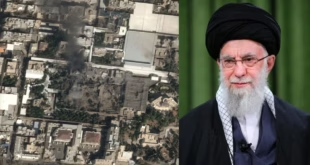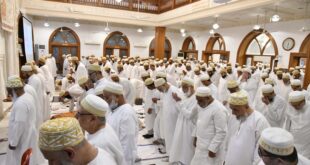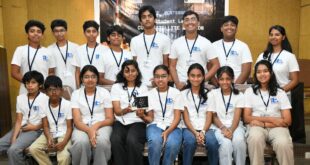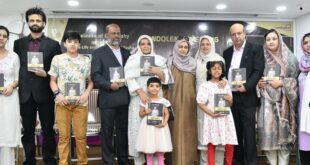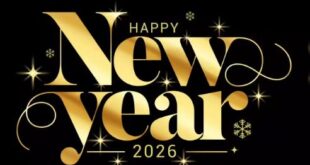Glimpses of a Ramadan in America
Three years after the Covid 19 pandemic shut doors of organizations including religious institutions like Masjids globally, many Muslims were overjoyed while many were deeply humbled to be able to experience the bliss of Ramadan once again. From congregational prayers in full attendance to Iftars and Islamic sermons, Ramadan was celebrated with full fervor. Several Muslims even offered special prayers to express gratitude to the creator for a pandemic-free Ramadan, finally.

Mosques were laced with Islamic decor, while Fanoos (Egyptian lanterns) in intricate Islamic designs welcomed the devotees back to Mosques. ‘Ramadan Kareem’ tapestry, Islamic calligraphy, and decorative banners adorned the walkways and corridors.
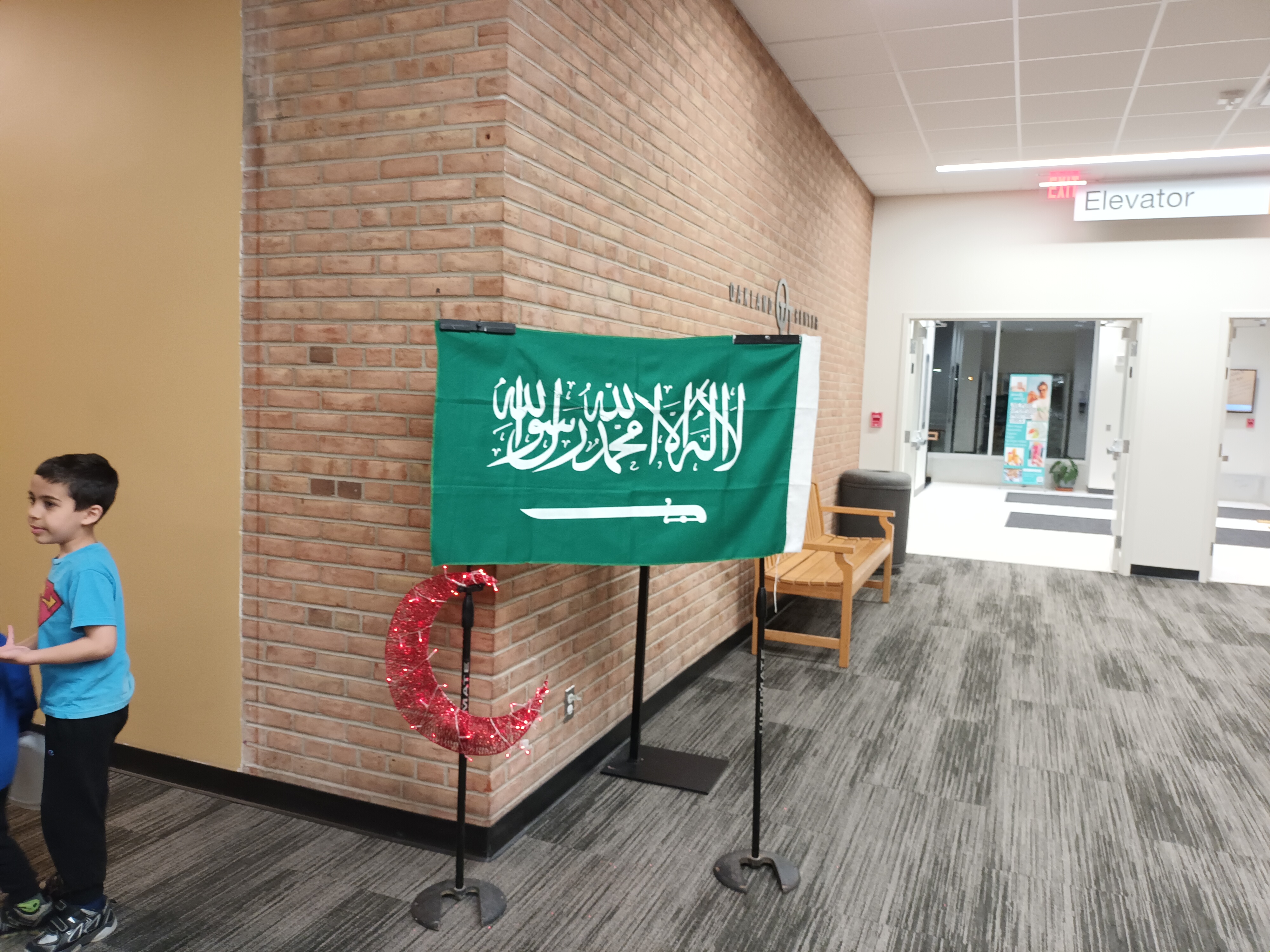
From balloons shaped like the crescent moon to camels at the entrance of the Islamic Association of Greater Detroit (IAGD), everything sets the mood for Ramadan. The situation is common across most, if not all Islamic centers, which opened their doors for Muslims once again after a nearly 3-year long covid-triggered hiatus.

From intellectual sermons that tug at heartstrings by Dr. Muneer Fareed and khutbahs in barebones Urdu by Mufti Rabbani at IAGD to the annual 3-day retreat for Muslims in i’tikaf at the Darussalam Masjid, one of the largest Islamic centers in west Chicago, each center has crafted its own way to celebrate Ramadan.

In New York, mid-taraweeh sermons by different Imams at the Islamic Cultural Center, one of the largest Mosques in the city exhilarate a large populace in attendance. Ramadan grocery giveaways and donation boxes to help the deserving, the student community, and particularly the Afghan refugees teemed with toys, gifts, dates, and everyday essentials seemed a common sight.
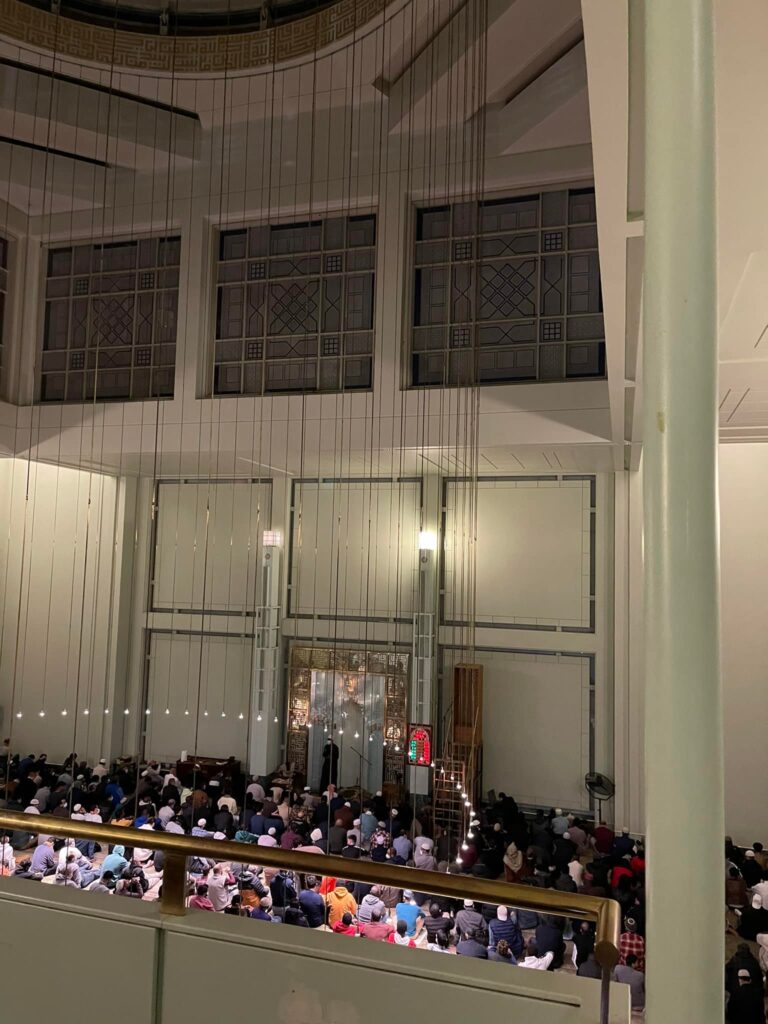
From the soul-refreshing recitation of the Holy Quran at the Muslim Unity Center in Michigan to the Adam Community Center that is struggling to establish itself as the first Mosque of the Troy city, from everyday Iftars at the Islamic Center of Kent in Washington to several such centers across the United States, there is a different approach to Ramadan in America.
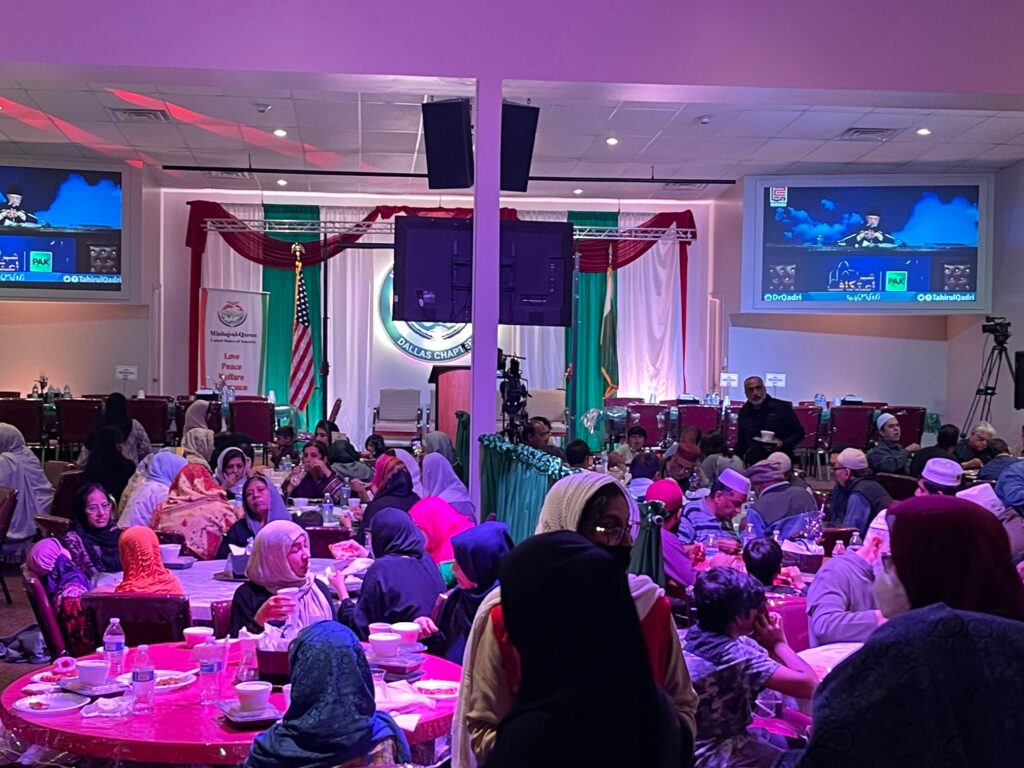
Every community from Arab to Bangladeshis, from Indians to Yemenis has a Mosque they can call their own. But largely, except for the English sermons, the mosques have an unmistakable Saudi charm when it comes to the interior, the Quranic recitation, the ambiance, and the prayer rugs.

Some centers with a larger Arab community in their vicinity even serve Arabic food in Suhoor and Iftar-dinners.

Student associations of Arabs in the United States organized Iftar programs. One such iftar was organized by the Saudi Students Association at Oakland University.

The Indian Muslim community across the United States held Iftar programs turn by turn each week. Naat and Quranic recitations by Hyderabadi youngsters and the youth were part of these events.
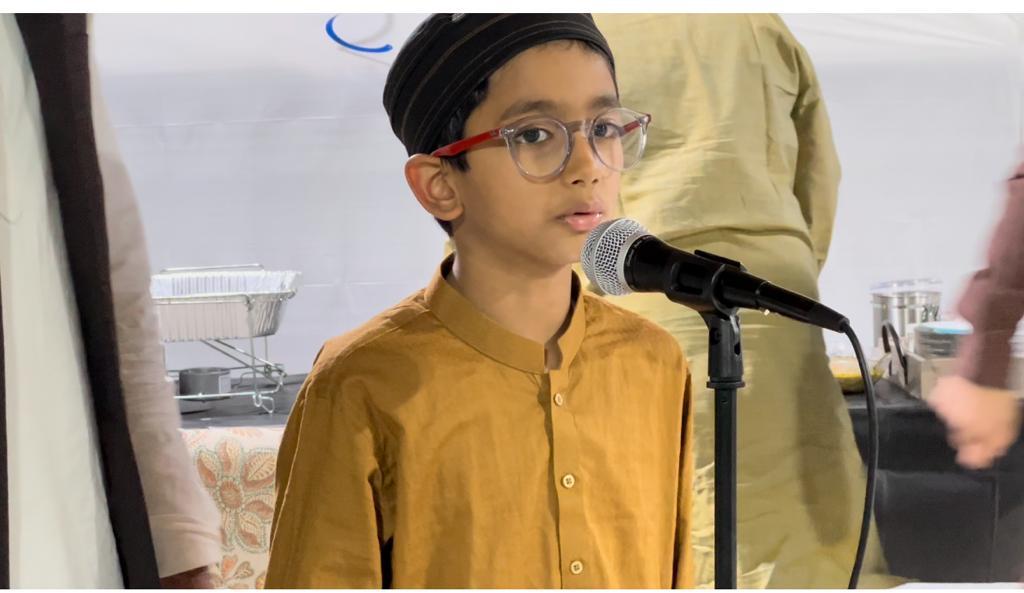
So were the scrumptious Biryani, Haleem, and Hyderabadi Chai.

Donation boxes for Afghan refugees were brimming with toys and essentials, and volunteers of different charity organizations invited the public to donate Zakat and Fitra after Taraveeh prayers in most mosques.
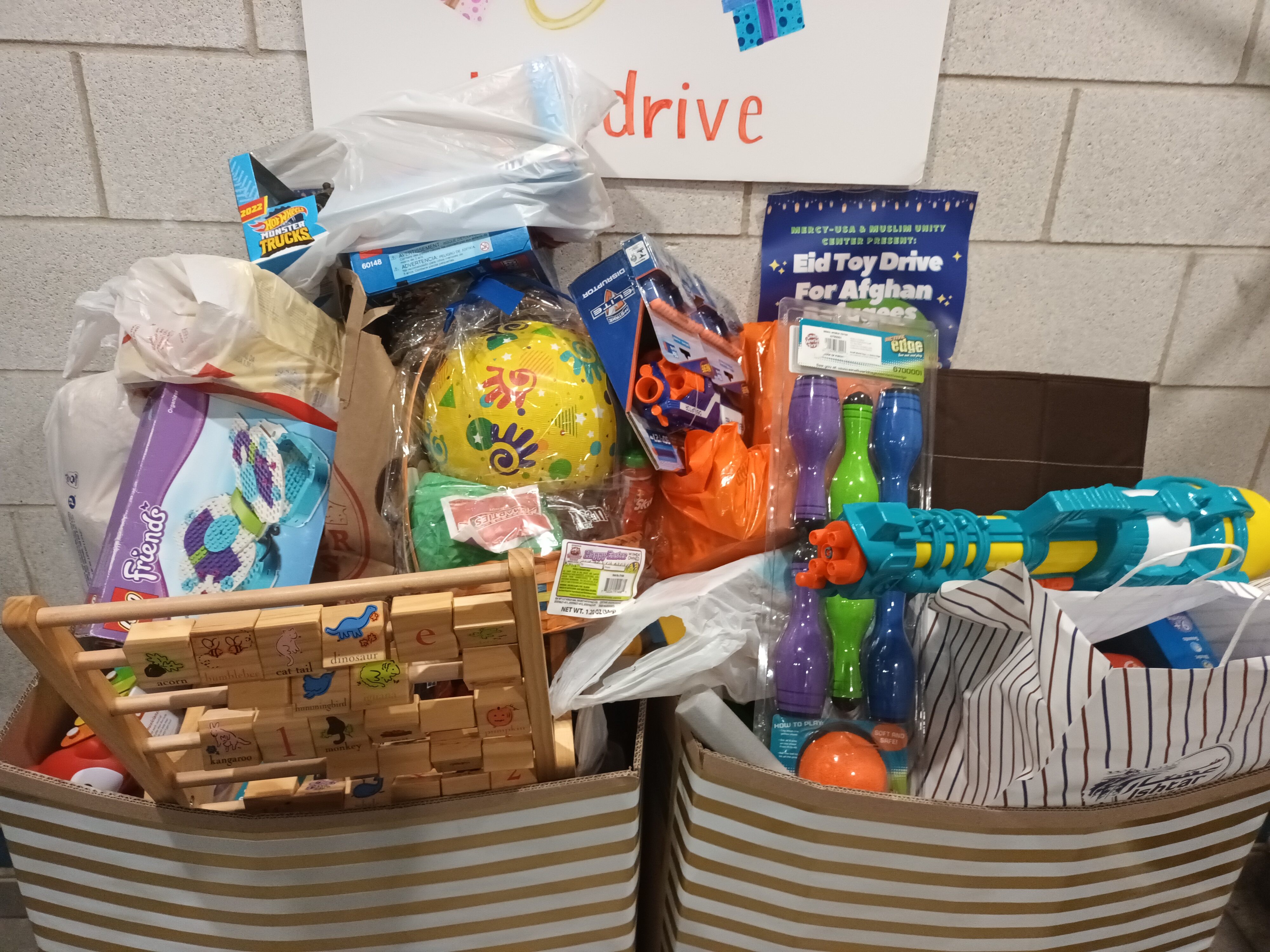
In Illinois, the Chicago Muslim Medical Alliance, the largest body of Muslim physicians in the United States held a grand Iftar followed by a lavish spread of Hyderabadi cuisine. Nearly 500 people including scores of elected US representatives, Arabs, and Indian Americans attended the event.

Every Ramadan, we have an extended opportunity to show the world how peaceful Islam is with such gatherings. The social exchange also helps mitigate misconceptions about Muslims among other communities”, said CMMA founder Dr. Tajammul Hussain.
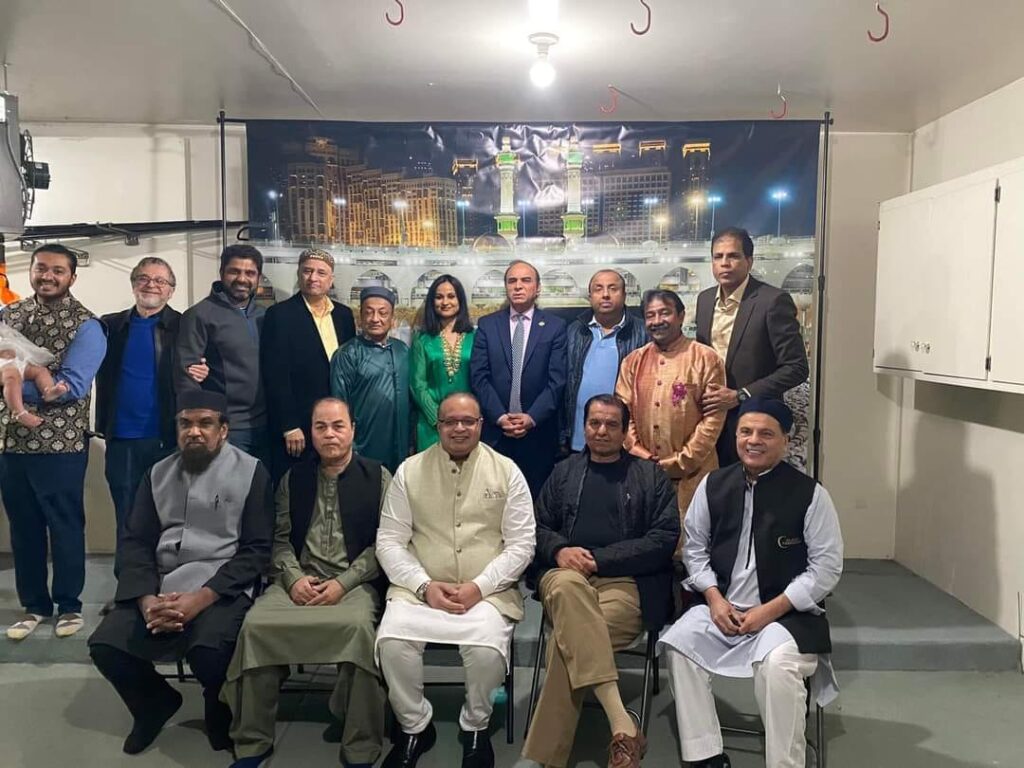
The Indian Muslim Relief and Charities (IMRC) made arrangements for helping the deserving strata of the community with its charity drive, said IMRC President Maqsood Quadri.
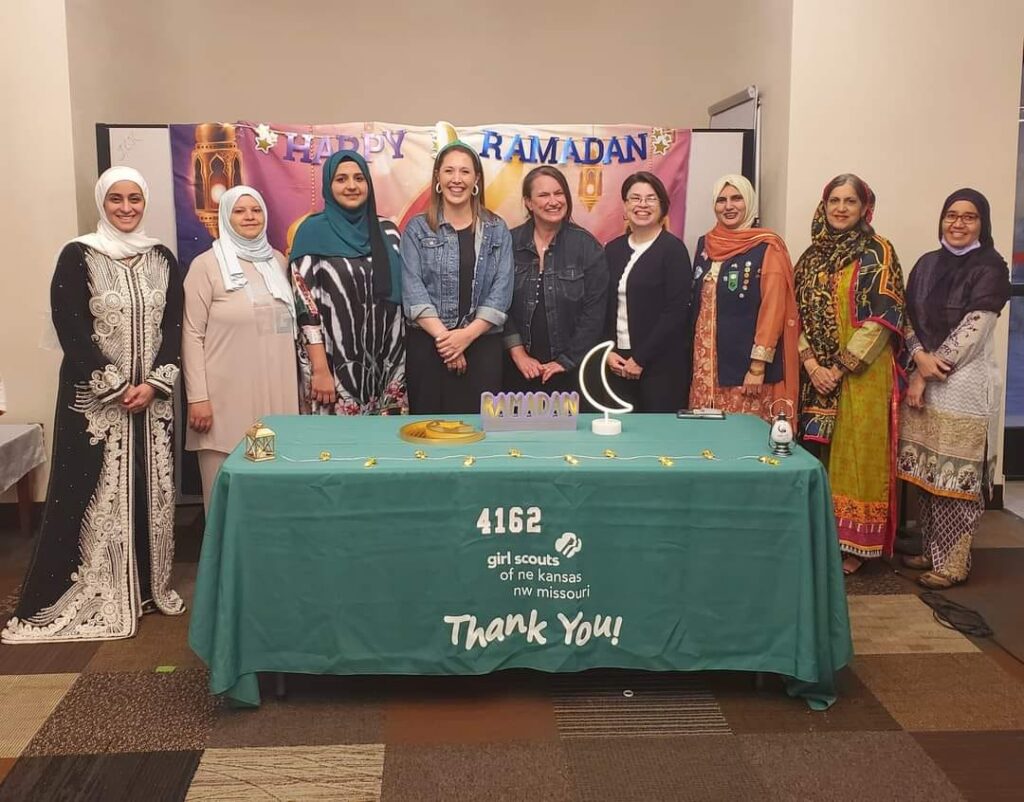
This year’s Ramadan was special as the Muslim community observed a pandemic-free Ramadan for the first time in three years since the onset of Covid-19 virus.
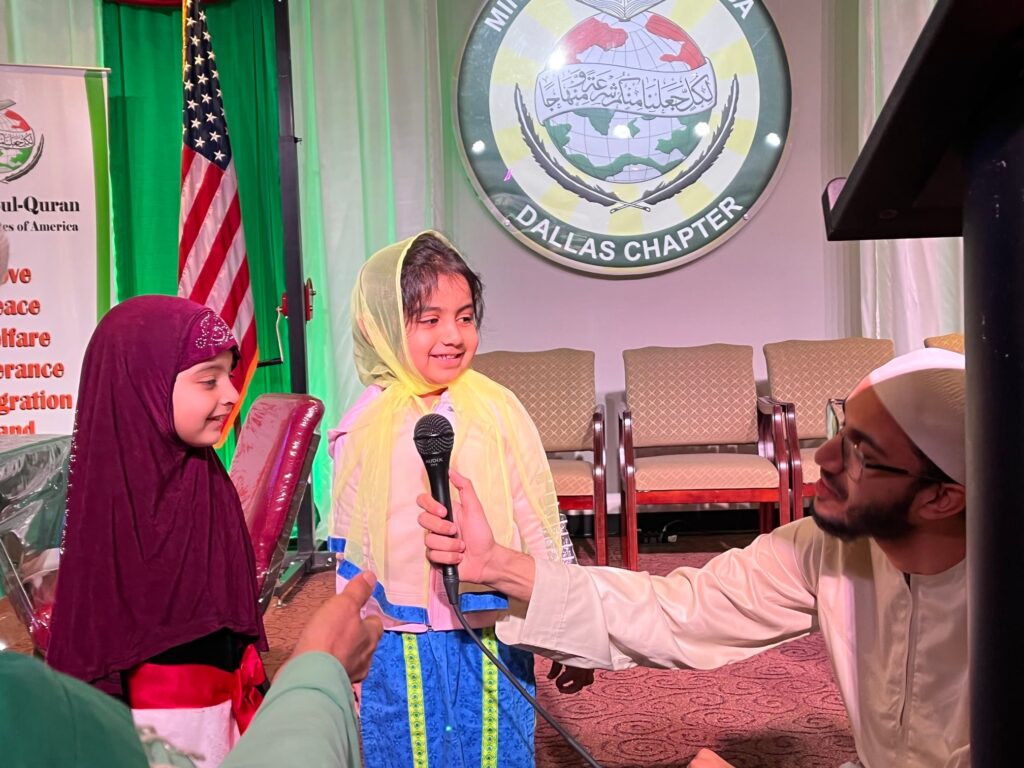
In 2019, Masjids and Islamic centers were closed to the public. In 2020 and the next year, there were restrictions on gathering and social distancing rules in place.
After the Covid-19 was declared a pandemic, restrictions imposed by Governments across the globe lead Muslims to observe Ramadan, the ninth month of the Islamic calendar, for the first time in nearly a century. Mosques shut down, devotees offered even the obligatory Eid prayers at home.
All that has changed. The Indian Embassy in the United States through its different chapters organized Iftar programs this Ramadan that were attended by high-ranking officials and who’s who of the Indian community here.

Faces of several musallis lit up with wide smiles as Ramadan began nearly 24 days ago. For 32-year-old Anwar un Nabi, who travels to Madina city in Saudi Arabia every Ramadan, the experience was quite memorable. “I’ve been waiting for the mosques to reopen since the pandemic. It’s an indescribable bliss to be able to pray at Masjids once again.”
 Gawah (The Witness) – Hyderabad India Fearless By Birth, Pristine by Choice – First National Urdu Weekly From South India – Latest News, Breaking News, Special Stories, Interviews, Islamic, World, India, National News
Gawah (The Witness) – Hyderabad India Fearless By Birth, Pristine by Choice – First National Urdu Weekly From South India – Latest News, Breaking News, Special Stories, Interviews, Islamic, World, India, National News

